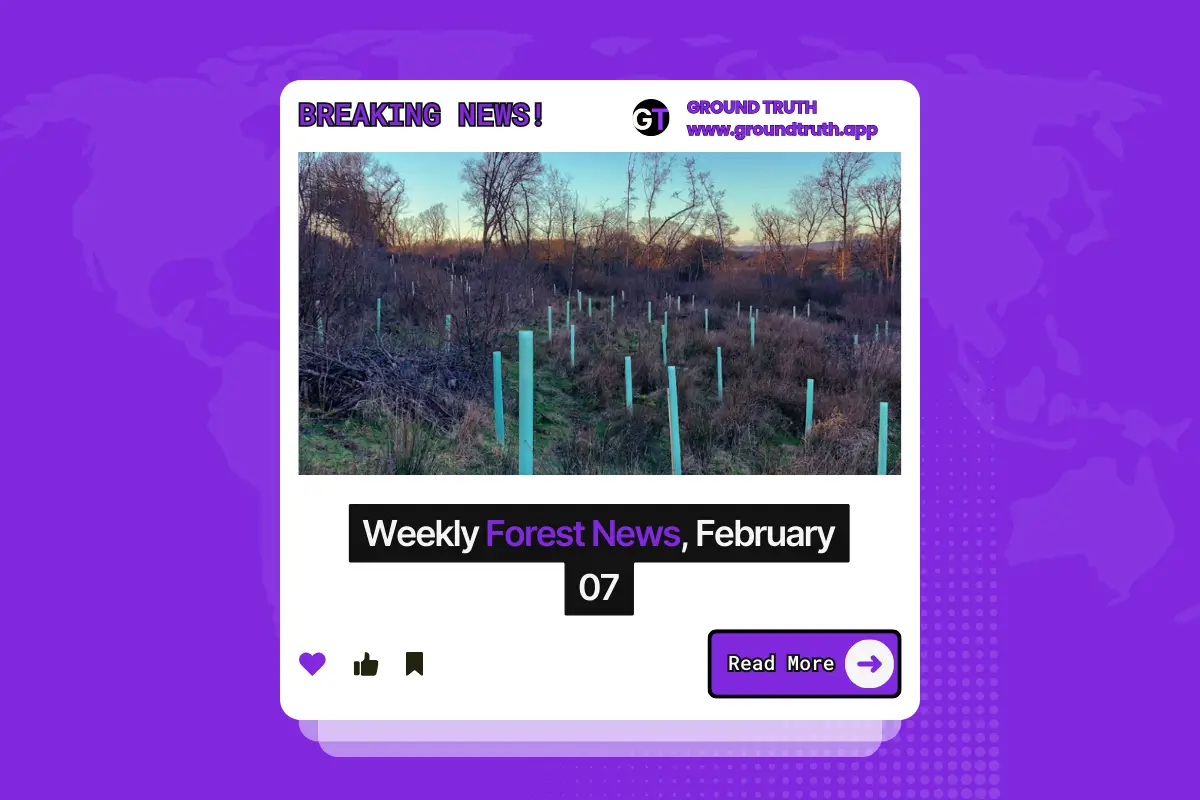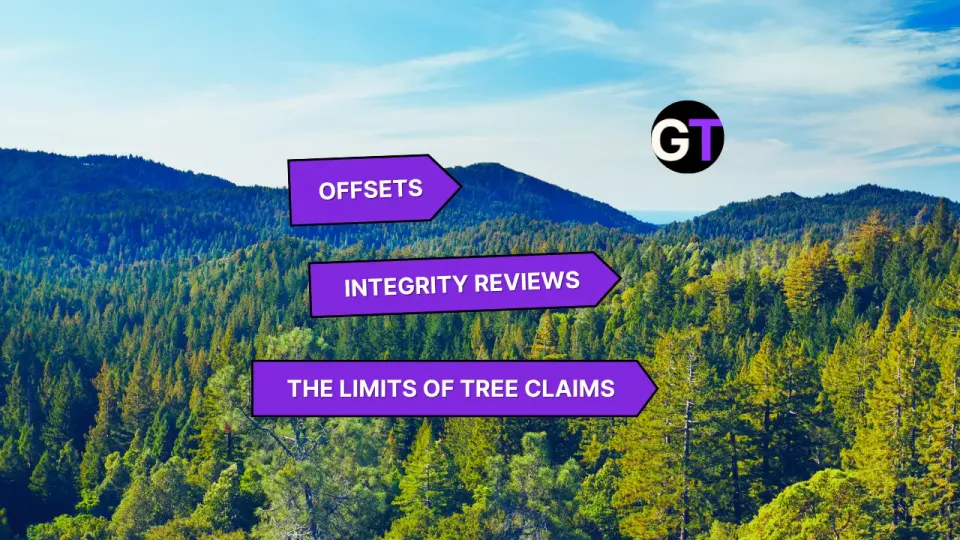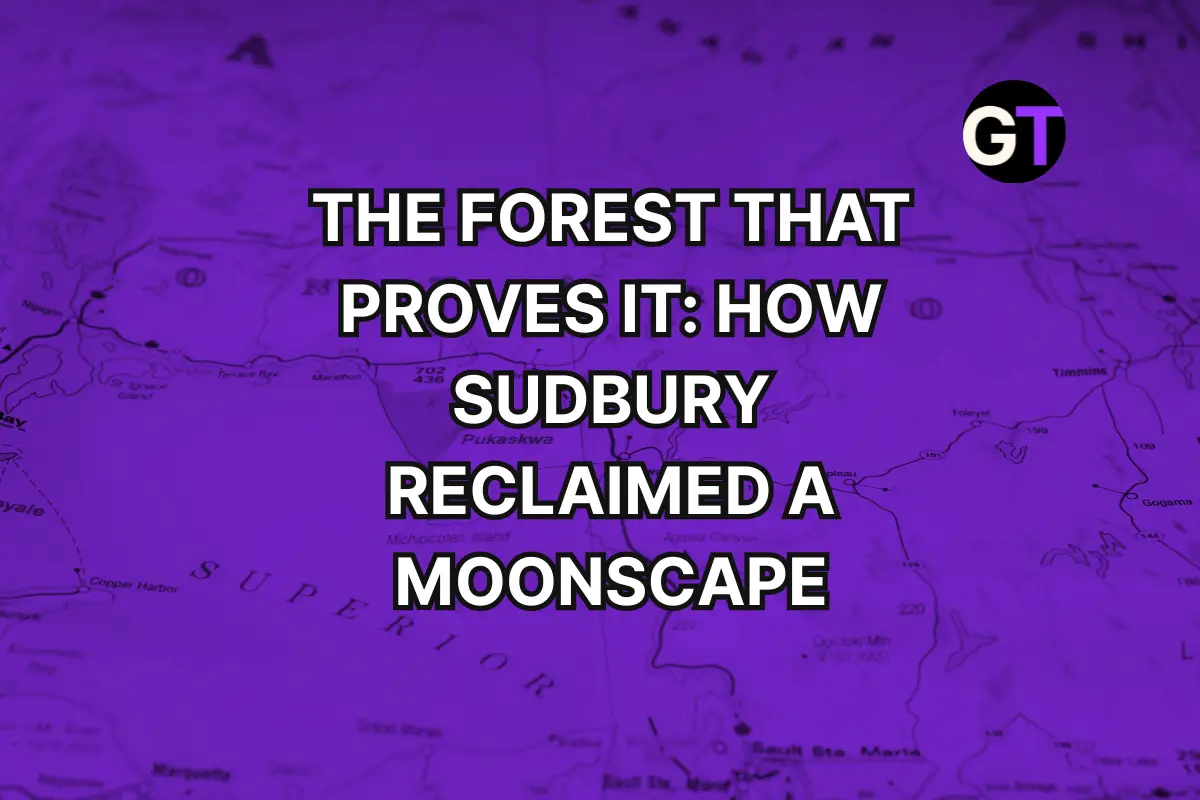Ground Truth Weekly Forest News February 7
Sri Lanka's GPS-tracked tree planting boosts transparency, while Microsoft buys 7M carbon credits for reforestation.

Reforestation Speeds Up Forest Recovery After Wildfires by 25.7%
A large-scale study from Northern Arizona University found that post-fire tree planting boosts forest recovery rates by 25.7%. Analyzing nearly 300 wildfire sites, researchers emphasized the importance of planting timing, moisture availability, and site conditions for successful reforestation. With wildfires growing in size and intensity, strategic tree planting is becoming essential for restoring ecosystems and capturing carbon.
How can we ensure reforestation efforts keep pace with increasing wildfire damage?
👉👉 Read more on phys.org
Sri Lanka’s Tech-Driven Tree Planting: Does It Deliver on Transparency?
Dialog Axiata and EcoMatcher have launched Sri Lanka’s first tech-based tree-planting platform, promising full transparency in reforestation. The platform allows users to track individual trees with GPS geotags and even verify planters, setting a high standard for accountability. While questions remain about scalability, this level of detail could push other reforestation projects to improve their tracking methods.
Should all tree-planting initiatives adopt GPS tracking to ensure accountability?
👉👉 Read our coverage on Ground Truth
MORFO Seeks Project Developers to Restore Brazil’s Forests
MORFO has launched a call for carbon project developers to scale reforestation in Brazil, supporting the country’s goal of restoring 12 million hectares by 2030. The initiative offers cost-effective planting, expert advisory support, and buyer connections for projects in the Amazon, Atlantic Forest, and Cerrado. Applications open February 11, with a deadline of March 12, 2025.
What incentives would make large-scale reforestation more attractive to landowners?
👉👉 Read the open call on MORFO
Restoring Brazil’s Atlantic Forest: Inside Natureza Bela’s Work
Speaking of MORFO, we recently had the pleasure of spekaing with one of their partners. Brazilian NGO Natureza Bela is leading reforestation efforts in the Atlantic Forest, planting 700,000 native trees annually with rural and Indigenous workers.
The organization combines manual and mechanized methods, tracks survival rates through in-person surveys, and is piloting drone planting for hard-to-access areas. I was intrigued to learn more about how their methods compare to Canadian restoration.
Are drones an innovative solution for reforesting hard-to-access areas?
👉👉 Read our interview on Ground Truth
Microsoft Expands Reforestation Offsets with 7M Carbon Credit Deal
Microsoft has signed a 25-year agreement with afforestation firm Chestnut Carbon to acquire over seven million carbon credits. The deal will restore 60,000 acres of marginal farmland in the U.S. by planting 35 million native trees. Chestnut, backed by Kimmeridge, aims to reforest 500,000 acres by 2030, removing 100 million tons of CO₂. This follows a similar deal with Brazilian startup Re.green last week.
Do corporate carbon credit deals meaningfully contribute to reforestation, or are they just offsets without lasting impact?
👉👉 Read more on Data Center Dynamics
India Supreme Court: No Forest Land Reduction Without Afforestation
India’s Supreme Court ruled that no forest land can be reduced for linear projects unless an equal area is provided for afforestation. The court reaffirmed its broad definition of ‘forest,’ rejecting claims that amendments to the Forest (Conservation) Act, 1980, would shrink forest cover. It also mandated states to compile comprehensive forest records within a year.
Should infrastructure projects be required to restore more forest than they remove to truly offset their impact?
👉👉 Read more in The Hindu
Kashmir's Forest Cover Is Increasing, Not Decreasing, Says CCF
More India news: the Chief Conservator of Forests, Kashmir, refuted claims of forest loss, citing ISFR 2023 data that shows a 34.78 km² increase in forest cover since 2021 and a 398.12 km² gain over the past decade. He urged accurate reporting and highlighted ongoing afforestation efforts, with 96,243 hectares restored and 64 million trees planted under CAMPA.
Should media outlets be held accountable for misreporting environmental data?
👉👉 Read more in Brighter Kashmir
This Week in Forest Finance – February 6
Reforestation efforts saw both progress and setbacks this week. Guyana allocated $300M for restoring mined-out land, while Florida’s Timber Recovery Block Grant officially closed. Meanwhile, the shutdown of USAID threatens global conservation projects, and $1.6M in research grants aims to improve mine reclamation. In the Philippines, new partnerships are strengthening reforestation in Palawan.
How can reforestation funding stay consistent despite political and economic shifts?
👉👉 Read our column on Ground Truth
Canadian First Nations Restore Logging Roads to Protect Endangered Caribou
First Nations in the Cariboo Chilcotin are rehabilitating old logging roads—dubbed “predator super-highways”—to help struggling caribou herds. These roads allow wolves and human hunters to move more efficiently, increasing predation pressure on caribou.
By deconstructing roads and replanting native vegetation, Central Chilcotin Rehabilitation Ltd. is working to restore ecological balance using both modern GIS mapping and traditional Indigenous knowledge.
Could road rehabilitation be a model for other wildlife conservation efforts?
👉👉 Read more in Wood Business
Edited by Chris Harris

This work is licensed under a
Creative Commons Attribution 4.0 International License.




